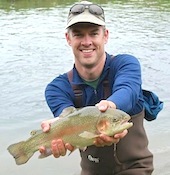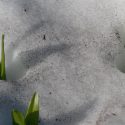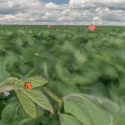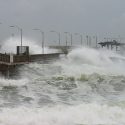Initiative reaches out to state residents on climate change
As climate change impacts the diversity and distribution of species statewide, University of Wisconsin–Madison researchers, wildlife officials and others are collaborating to inform the public about these changes and ways to adapt.
Dan Vimont, Wisconsin Initiative on Climate Change Impacts (WICCI) co-chair, says the decentralized 250-member organization has moved into its second phase, emphasizing two-way communication focused on university research and its application in communities.

Dan Vimont
“From the university perspective we’re in a new paradigm in academia where there’s a new kind of problem that can’t be solved in isolation. A lot of these problems are at the boundaries of disciplines,” says Vimont, an associate professor of atmospheric and oceanic sciences at UW–Madison. “We’re lucky to be at UW where we have a long and rich history of having low walls that make it easy to work across disciplines and with the public.”
Vimont says the Wisconsin Department of Natural Resources used the initiative’s data in its statewide plan for adapting to the impacts of climate change. For example, the DNR used information the group provided on how trout habitat is likely to change to develop its own action plan.
Officials shared the information with public audiences at local venues in southeastern Wisconsin where they received feedback on conservation goals, Vimont says. WICCI used the feedback to better shape its research.
The initiative also provides workshops throughout the state and lectures on climate change impacts while also working on a one-on-one basis. Vimont says WICCI members have presented lectures to insurance executives, briefed high ranking state officials and video chatted with northern Wisconsin middle school students.
Cathy Techtmann, Iron County UW-Extension environmental outreach state specialist, says the initiative was indispensable in developing the “Gikinoo’wizhiwe Onji Waaban” (Ojibwe for “Guiding for Tomorrow”) or “G-WOW” initiative.
“We’re lucky to be at UW where we have a long and rich history of having low walls that make it easy to work across disciplines and with the public.”
Dan Vimont
G-WOW, a collaboration between multiple partners at the federal and state level, focuses on the intersection of culture and climate change for the Ojibwe living near Lake Superior.
Developing the initiative, which features a website, an exhibit at the Northern Great Lakes Visitor Center and workshops for teachers and the public, involved the Ojibwe informing and teaching WICCI about their culture and concerns to shape the direction of its research, Techtmann says.
Despite the distance between Northern Wisconsin and Madison, the initiative has sent people and resources to the northern part of the state, Techtman says, adding that without WICCI, the exhibit would not have existed.
“The WICCI resources are absolutely amazing – they’re outstanding,” Techtmann said. “I looked at other state model when helping to develop G-WOW with our partners, and no one has anything close to what we have.”
Subscribe to Wisconsin Ideas
Want more stories of the Wisconsin Idea in action? Sign-up for our monthly e-newsletter highlighting how Badgers are taking their education and research beyond the boundaries of the classroom to improve lives.
Tags: climate change, research, The Wisconsin Idea



